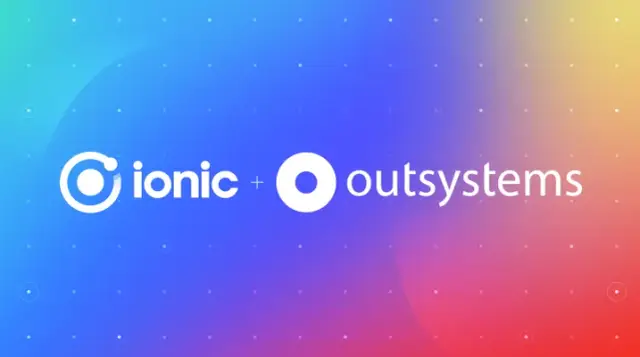OutSystems Acquires Ionic to Streamline Low-Code App Deployment
OutSystems has acquired Ionic, an open-source framework provider, to bolster their low-code app development platform.

OutSystems, a leading low-code application development platform provider, announced this week that it has acquired Ionic, an open-source framework provider. Ionic offers developers an elevated level of abstraction for creating and deploying mobile and desktop applications with ease. Patrick Jean, OutSystems CTO, explained that the acquisition of Ionic would help the company further improve their platform for building low-code applications.
The Ionic framework provides many advantages, including automatically resizing applications to fit different device screen sizes. As a result, developers can focus on building their applications without dealing with the technical aspects of screen sizing. Patrick Jean emphasized that Ionic would act as an extension to the existing OutSystems platform, which already automates app-building and deployment. In addition to their open-source UI framework for crafting cross-platform mobile applications, Ionic's product suite includes a tool called Capacitor, which simplifies native web application deployment. The company also offers Stencil, a toolchain for creating web component-based design systems. With over five million developers utilizing these tools today, their acquisition by OutSystems promises extensive improvements. OutSystems plans to expand Ionic's tools' capabilities, according to Jean. The goal is to provide a seamless experience for deploying apps on both mobile and desktop systems, thereby reducing the cognitive load and complexity often experienced by developers.
As low-code tools and platforms rise in popularity among professional developers, citizen developers (business individuals who occasionally create applications) are poised to contribute significantly to app development. Having accessible low-code tools is becoming increasingly important to address the growing backlog of app development projects and meet the ever-growing demand for new applications. Companies like AppMaster also contribute to the low-code ecosystem, offering powerful no-code platforms that allow users to develop backend, web, and mobile applications. However, the increasingly widespread adoption of low-code tools raises questions about their impact on DevOps workflows. It is crucial for DevOps teams to establish security-focused guardrails, allowing developers with varying skill levels to securely deploy and update applications. Low-code platforms such as OutSystems and AppMaster have accelerated digital business transformation, empowering organizations to innovate at an unprecedented rate. As a result, companies may face the challenge of adapting their processes, ensuring they can keep up with the rapidly evolving technological landscape.





